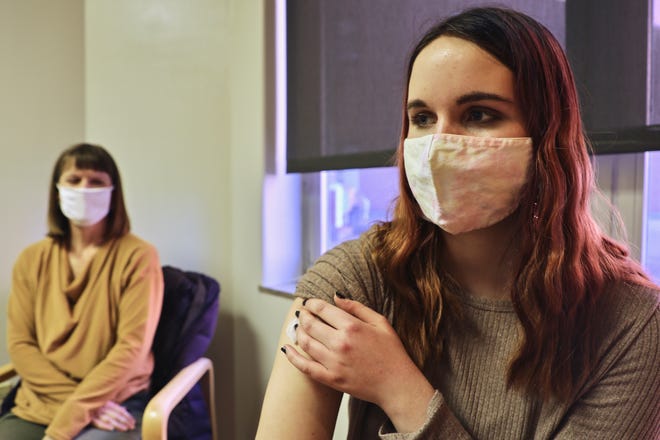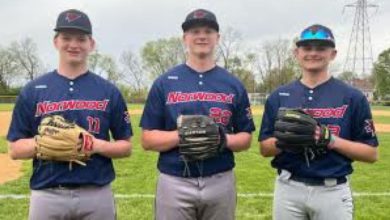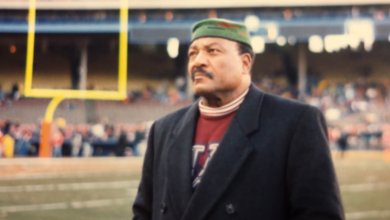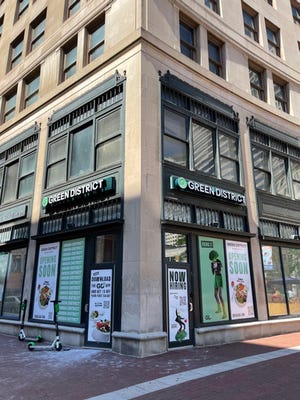
Katelyn Evans, 17, one of the first Greater Cincinnati kids to get the COVID-19 vaccine, calmly presses gauze on her arm where the vaccine injection poked in.
It's Feb. 23 and she takes the Pfizer vaccine and subsequent waiting period like a pro. Last time she got an injection here at Cincinnati Children's Hospital Medical Center, in the fall, it was a placebo. She was 16.
Katelyn is among adolescents who volunteered for the Cincinnati Children's COVID-19 vaccine trial for adolescents 12-17. She was "unblinded" Feb. 15 and told she got the placebo before the trial's end so that she could have a chance to get the actual vaccine.
The Oak Hills High School junior has no regrets about joining the trial, even after finding out she did not get the vaccine, even after spending weeks monitoring her health closely and reporting to the medical center as needed for check-ins. In fact, Katelyn is proud to be part of the trial.

She knew from the outset that she had a 50-50 chance of getting the vaccine. She is playing a role in science that will touch other kids' lives.
"I'm just really happy to play whatever part I can in making sure that they get the vaccine out as fast as possible," Katelyn says. "Because the more people who participate, the better numbers they get, and the more people they can get it to."
Would she do it again? Absolutely, she says. Would she encourage other kids to take part? Yes.
The Enquirer asked Dr. Robert Frenck, who is leading adult and child vaccine studies at Cincinnati Children's, all about the trial for kids. Frenck is director of the National Institutes of Health-funded Vaccine and Treatment Evaluation Unit and Gamble Program for Clinical Studies.
Here's what we learned:
About the trial
The Pfizer vaccine trial at Cincinnati Children's is among the first in the nation. It is for adolescents, ages 12-17. The trial started in October.
About 350 kids from the region are taking part. Enrollment is closed, but Frenck anticipates leading another COVID-19 vaccine trial for kids soon.
Nationwide, 2,000 kids participated in the trials' 12-15 age group and 600 in the 16-17 age group. Injection phases (two per participant) have been completed.

What happens to kids in the trial?
Every child is given the right to withdraw. Even after enrollment, they can decide they don’t want to continue and the trial team honors the request. Even if parents want their child to continue, the decision to withdraw stays with the child, and the trial team explains this to the parents.
Each child who volunteered was given two injections, a few weeks apart. Half of the kids were given placebos and half were given the COVID-19 vaccine. They got the same dose that adults get.
Each was given a journal and told to record any symptoms, and each was provided a 24-7 contact number in case they had any questions or thought they needed any kind of medical care. All of them were told to report any COVID-19-like symptoms.
Can I enroll my child for this trial?
The enrollment for the current trial is closed. Spoiler alert: Scroll to the final question's answer to see how your child can get involved in future trials.
The children who are enrolled will be followed for about one year. They'll be checked on periodically, and they've gone (and will continue to go) to Cincinnati Children's at scheduled intervals for bloodwork, which will tell the researchers whether their antibody levels change over time. The idea of the vaccine is to create antibodies that will fight the virus, keeping the kids from getting sick.
The study period will be complete after all the children have their final trial visit.
Results of the trial?
Researchers are still collecting and analyzing safety and immune response data from the kids in the trial. Frenck estimates that preliminary data will be completed in a month or two.
The side effects that have occurred in adolescents have been very similar in type and severity, Frenck said. Many had none. Some had pain at the injection site. Some had fatigue or got a headache. The kids who had side effects had them start within 24 hours of the vaccination. They lasted a day or two.
When will teens get vaccines?
Already, the Emergency Use Authorization for the Pfizer vaccine is approved for anyone 16 and older. So, when vaccine is available for the general population, teens from 16-19 will be included.
Beyond that, Frenck thinks that there will be one or more COVID-19 vaccines licensed for kids 12-15 before the 2021-22 school year, which could lead to vaccination of this age group before they go back to school.

What about younger kids?
Yes, there will be vaccine trials for children under 12, although it's not yet clear how young participants might be.
And yes, Cincinnati Children's "most definitely" will take part, Frenck said. He thinks the trial will start in late March to April, and that it could be about a year before younger children in the general public will be able to get vaccinated.
Future trials
If you want to see whether your child is eligible to join a future trial, click here and fill out the medical center's e-screener form. If you do, Cincinnati Children's will contact your family when the vaccine clinic has specifics about a study.
The Enquirer is closely following the Cincinnati Children's Hospital Medical Center's vaccine trials for kids and has interviewed families involved. For a more detailed map of what's happened, check out these stories:
Source link








